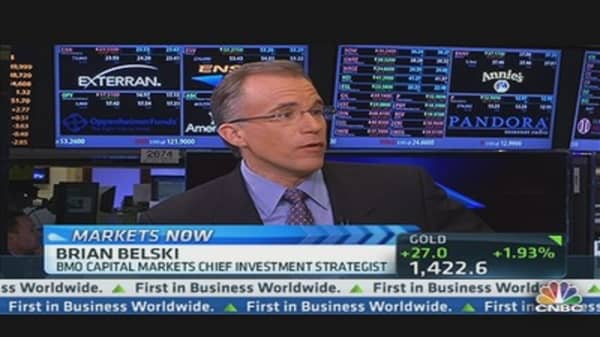Belski said there is a "clear risk" for a dip soon. "Clearly housing numbers have slowed, employment numbers have slowed, company guidance was excessively negative coming into the quarter. So once again, corporate America is becoming conservative," he said. "So if you bid up these stocks and all of a sudden you're worried about valuations and growth, no wonder the market is rolling over on a near-term basis."
(Related: Existing Home Sales Fall as Prices Rise Most Since 2005)
"We're still big believers in a second-half recovery, but we still think we have near-term weakness in the market," he said. Belski's firm holds a 1,575 target on the S&P 500, despite the short-term weakness.
Belski warned that historically, the leaders from a previous cycle are not leaders in the next cycle. In the past cycle, leaders were emerging markets and commodities, along with the weak dollar trade. "That trade has worn itself out and now you have to move on to the next fundamental trade," he said.
(Read More: Market Rally Faces 'July Jitters': Citi Strategist Warns)
Belski said the dollar, along with the U.S. economy, is likely at a bottom and is set for a long-term bullish cycle. "We're back to the 80's and 90's again" in this regard, he said.
"The last dollar cycle trade was for nine years," he added. "The average weak dollar trade is for six years, so we could have a longer, stronger dollar trade this time around."
— By CNBC's Paul Toscano. Follow him on Twitter and get the latest stories from "Squawk on the Street" @ToscanoPaul
Disclaimer



